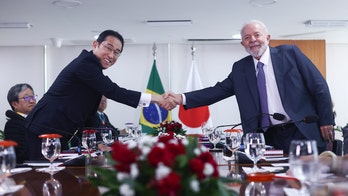Narendra Modi, India's Prime Minister, has secured a third term in office. His victory underscores his popularity and the rise of Hindu nationalism in the country, but also highlights the divisions and challenges that India faces under his leadership.

Narendra Modi, the charismatic and controversial leader of India, has secured a third term as Prime Minister after his Bharatiya Janata Party (BJP) emerged victorious in the recent general elections. Modi's victory is a testament to his enduring popularity and the growing influence of Hindu nationalism in Indian society.

However, it also underscores the deep divisions and challenges that plague the world's largest democracy under his divisive rule.
To his supporters, Modi is a larger-than-life figure who has transformed India on multiple fronts. Under his leadership, the economy has grown at a rapid pace, making India the world's fifth-largest economy. He has also expanded social welfare programs, providing benefits to millions of impoverished Indians.
Modi has also taken steps to streamline the government, reduce corruption, and improve the country's infrastructure. His focus on national security and his tough stance against terrorism have also resonated with many voters.
However, Modi's critics paint a much different picture. They accuse him of eroding democracy, suppressing dissent, and targeting India's Muslim minority. They point to his government's revocation of Kashmir's special status, the passage of a citizenship law that discriminates against Muslims, and the crackdown on free speech and media freedom.
They also criticize Modi's increasingly authoritarian style of governance, his reliance on cronyism, and his failure to address the country's deepening inequalities.
Modi's Hindu nationalist agenda has been a defining feature of his tenure. He has promoted the idea of a Hindu nation, marginalized religious minorities, and stoked communal tensions. His rhetoric has emboldened right-wing extremist groups, leading to a surge in violence against Muslims and other minorities.
Modi's personal life and beliefs have also been the subject of much scrutiny. He is a staunch Hindu nationalist who has embraced religious symbols and rituals in a way that has been unusual for previous Indian leaders. He has also made claims that suggest he believes he is divinely chosen to lead India.
Born in 1950 to a lower-caste family, Modi joined the Rashtriya Swayamsevak Sangh (RSS), a paramilitary, right-wing group with a history of promoting Hindu supremacy, in his youth. His political career began in the state of Gujarat, where he served as chief minister from 2001 to 2014.
His tenure in Gujarat was marked by the 2002 anti-Muslim riots, in which over 1,000 people were killed. Modi was accused of tacitly supporting the violence, but he has denied any wrongdoing.
In 2014, Modi led the BJP to a landslide victory in the national elections, becoming Prime Minister for the first time. He secured a second term in 2019, consolidating his power and the BJP's dominance in Indian politics.
Modi's third term will be crucial in determining the future direction of India. His supporters hope he will continue to deliver on his promises of economic growth and national security. His critics fear that he will further erode democratic norms and implement a hardline Hindu nationalist agenda.
Only time will tell how Modi's legacy will ultimately be judged. But there is no doubt that he is one of the most consequential figures in Indian history, a leader who has left an indelible mark on the country's politics, society, and destiny.










